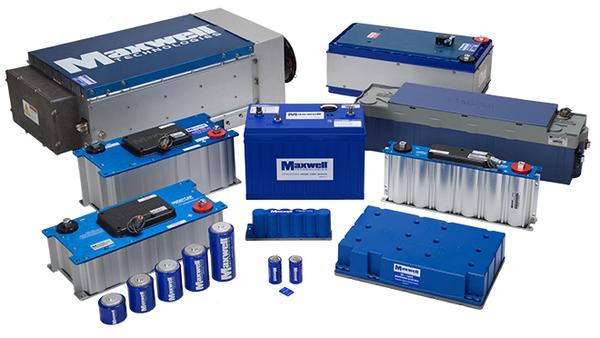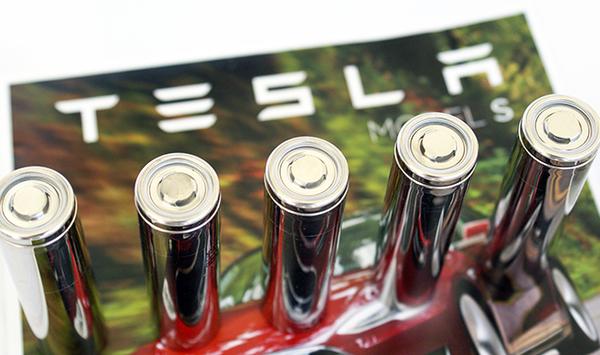WHY DID TESLA ACQUIRE MAXWELL TECHNOLOGIES?
Tesla’s acquisition of battery supplier Maxwell Technologies went mostly unnoticed by the mainstream press, but it could have a tremendous influence on the future of the California carmaker, and of the entire auto industry.
*This article comes to us courtesy of EVANNEX (which also makes aftermarket Tesla accessories). Authored by Charles Morris. The opinions expressed in these articles are not necessarily our own at InsideEVs.
 |
Above: A sampling of batteries from Maxwell Technologies (Image: Maxwell Technologies)
Maxwell, which was founded in 1965 as a government contractor, is based in San Diego and has about 380 employees. The company has gotten a lot of coverage in the EV press, mainly because of its innovations in the realm of ultracapacitors. The astute will recall that Elon Musk was planning to study ultracapacitors when he arrived at Stanford in the 1990s.
However, Electrek’s Fred Lambert surmises that Tesla’s acquisition of Maxwell may have little to do with ultracapacitors, and much to do with “dry electrodes,” which the company calls “a breakthrough technology that can be applied to the manufacturing of batteries.”
Maxwell claims to have demonstrated that its proprietary electrode can enable an energy density of over 300 Wh/kg, and predicts that it can achieve over 500 Wh/kg. Of course, the energy density of Tesla’s batteries is top secret, but it’s widely believed to be the best in the industry. Tesla owner Sean Mitchell, who discusses some of the possible reasons that Tesla bought Maxwell in a recent video, estimates that the energy density Maxwell is talking about would represent an improvement of between 15 and 50 percent compared to Tesla’s current batteries.
.embed-container { position: relative; padding-bottom: 56.25%; height: 0; overflow: hidden; max-width: 100%; } .embed-container iframe, .embed-container object, .embed-container embed { position: absolute; top: 0; left: 0; width: 100%; height: 100%; }
Above: Sean Mitchell discusses the possible rationale for Tesla’s most recent acquisition (Youtube: Sean Mitchell)
This would be a huge step forward, enabling longer range and/or smaller battery packs, but other benefits could be even more important. Maxwell says its technology can simplify the manufacturing process and result in a “10 to 20% cost reduction versus state-of-the-art wet electrodes,” while also “extending battery life [by] up to a factor of two.”
A cost reduction of anything like this magnitude would be a huge step forward, possibly enabling Tesla to make the Semi economically viable, and to start delivering the long-awaited $35,000-dollar Model 3.
Of course, companies regularly announce advances in battery tech, but Elon Musk and JB Straubel have repeatedly said that, while they keep a close eye on new developments, they haven’t yet seen a cell that’s proven to be better than those produced by Tesla and partner Panasonic. In mid-2018, Straubel said (as reported by Electrek), “We try to talk with every single battery startup, every lab, every large manufacturer. We get quotes from them. We test cells from them. If there’s anything better, we are all ears, we want to find it, but we haven’t found it yet.”
 |
Above: Tesla’s lithium-ion cells (Image: Charged)
The fact that Tesla is willing to pony up around $218 million for Maxwell indicates that it has finally found a firm that can deliver the goods.
===
Written by: Charles Morris; A version of this article originally appeared in Charged; Sources: Maxwell Technologies, Electrek, Sean Mitchell
*Editor’s Note: EVANNEX, which also sells aftermarket gear for Teslas, has kindly allowed us to share some of its content with our readers, free of charge. Our thanks go out to EVANNEX. Check out the site here.
Source: Electric Vehicle News

